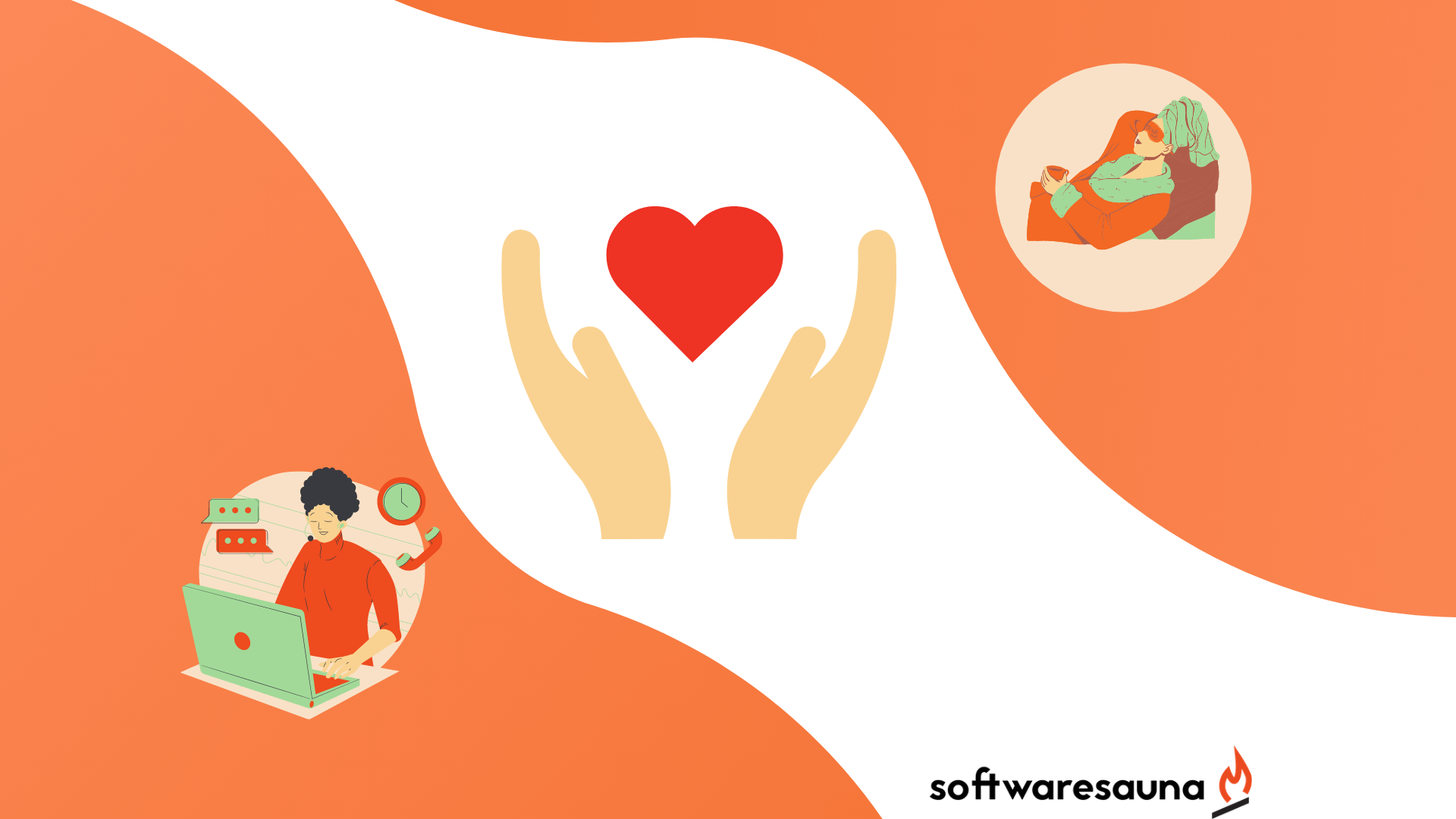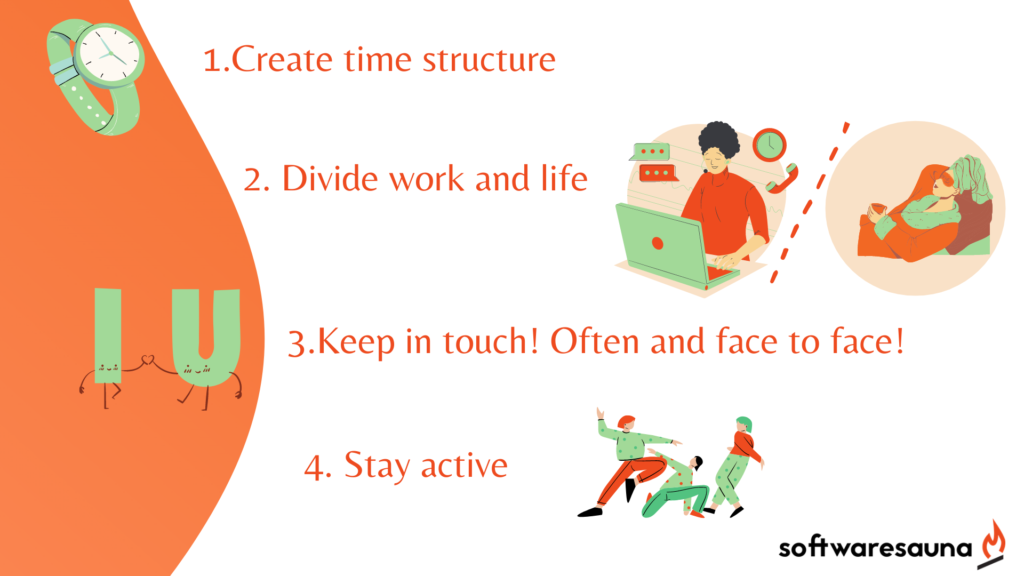Employee wellbeing while working from home

There are several lists of dos and don’ts when it comes to adapting to remote work. However, handling a prolonged remote work environment is a less covered topic of discussion. Our HR Specialist Adrijana, with a background in psychology, took a stab at it by making you an easy checklist.
Remote work is a relatively new concept in Croatia. Before the Covid-19 crisis a very small number of Croatians occasionally worked from home. Now we find ourselves in this “new normal” where many of us are working from home for a prolonged period of time, especially in the IT sector. A situation like this, where we transfer our work from the office to our homes for a prolonged period of time brings on a new set of challenges.
The most apparent fact is that working from home for a long period of time is blurring the lines between our work and private life. It is hard to decide when the work and our free time start and end, especially if the working conditions in our home are not ideal. If we get distracted by our personal life (e.g. caring for small children, doing housework), we might feel the pressure to increase our productivity, which can lead to anxiety or excessive working hours. Working from home can also limit our social contacts and in turn, enhance the sense of isolation. This disturbed work-life balance can result in a decreased job performance and a sense of well-being.
Our Software Sauna team has been working mostly remotely since March. This has been the case in many software companies. We try to support our employees during these times and here are some of the tips we shared with the team. Maybe you will find them useful too.

1. Create a time structure
Creating a clear time structure improves both job performance and well-being of employees. Setting firm working hours helps employees separate work and personal life. To help you create structure, write down your goals and tasks for the day. Also, plan a few short breaks and a longer one for lunch. You can even set a timer on your phone for each break that will remind you the allotted time for a break is over. That way you can relax without feeling that you are wasting time.
2. Divide work and life
To make a clear divide between work and private life, try to select a dedicated workplace which will help you get in the work mode every day. Try to avoid working from your bed because that is a place we associate with rest and relaxation. Making it your workplace will both disrupt your sleep and make you less productive. You can also develop transitional activities at the start and the end of the work day. In the morning it could be your usual routine, like having coffee and breakfast. Try to avoid working in your pajamas or loungewear and dress up for work. It doesn’t have to be anything fancy, just something you wouldn’t wear on your couch watching TV. At the end of the work day, store your work equipment out of sight if possible, change into something comfortable and maybe have a walk to make a psychological switch from work to personal life.
3. Keep in touch! Often and face to face
Prolonged periods of working from home can lead to a sense of isolation. That is why it is really important to use technology and communicate face to face using video calls with your colleagues and clients. In Software Sauna we have our online company coffee video call 3 times a week to chat and keep in touch with our colleagues. This is not to be seen as wasted time, because it is important to remember that maintaining good relationships with colleagues is a part of healthy work life. When you are working from the office it is natural to chat with colleagues during working hours without feeling the guilt of not working. It should be the same if we transfer that communication online. If you are starting to feel isolated and need extra support, reach out to a trusted colleague, supervisor or HR professional to tell them how you feel. Sometimes just sharing our struggles helps us feel connected to others and reduce our anxiety, and maybe they will give you good advice based on their own experience.
4. Stay active
Working from home can often lead to decreased physical activity, since we are not commuting to the office every day. Especially now that the weather conditions are worsening and we are not motivated to get out in the rain if not necessary. It is important to remember that physical activity has a big impact on our mood. Lack of physical activity can lead to lack of motivation and productivity and higher levels of anxiety or depression. To keep your mood up, try to use your breaks to do a few minutes of simple exercises or walk around the neighbourhood before or after work.
We hope these tips will help you keep your work-life balance and maintain your job productivity and well-being. This is a challenging time for everyone but we are keeping our Software Sauna fire strong and hoping for a positive end of the year!

